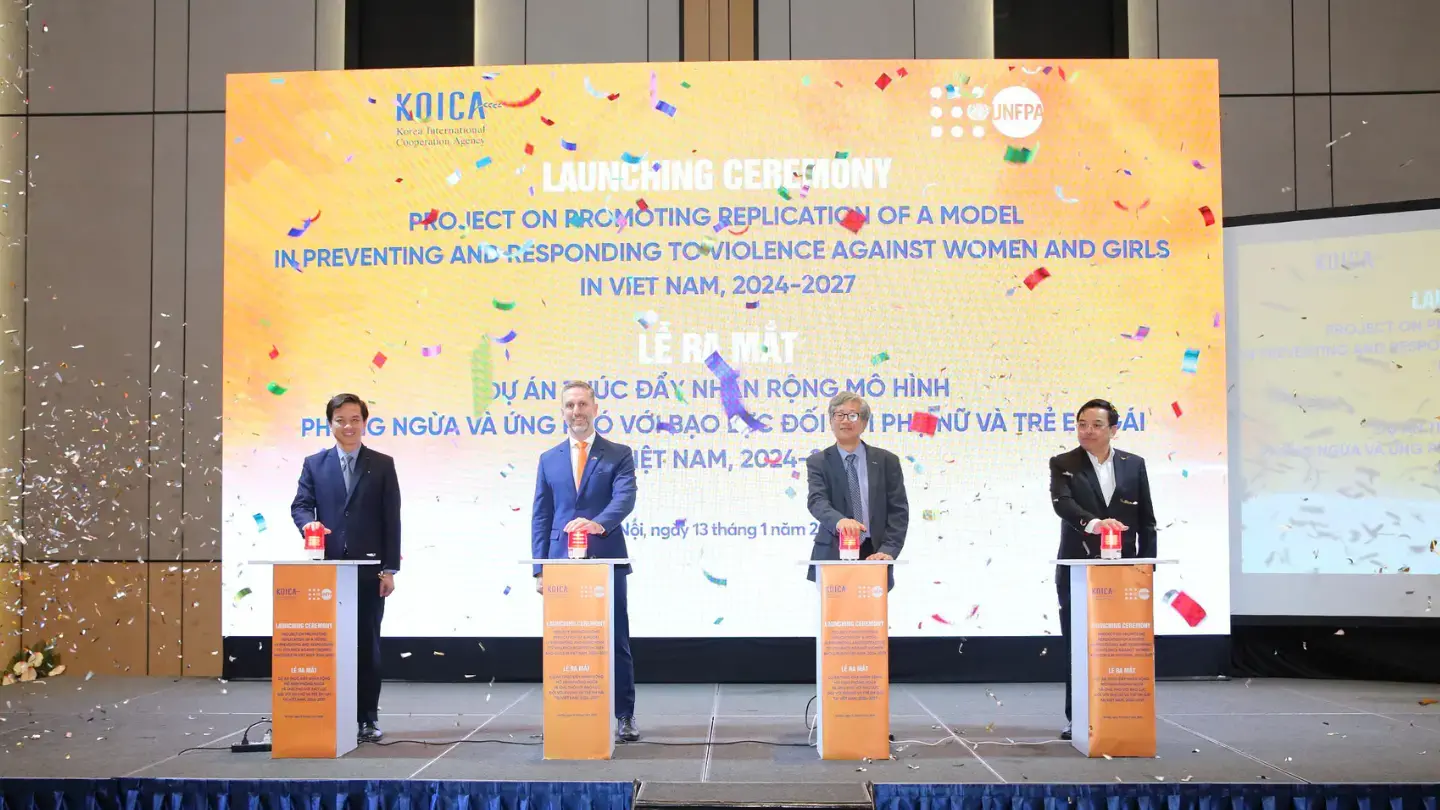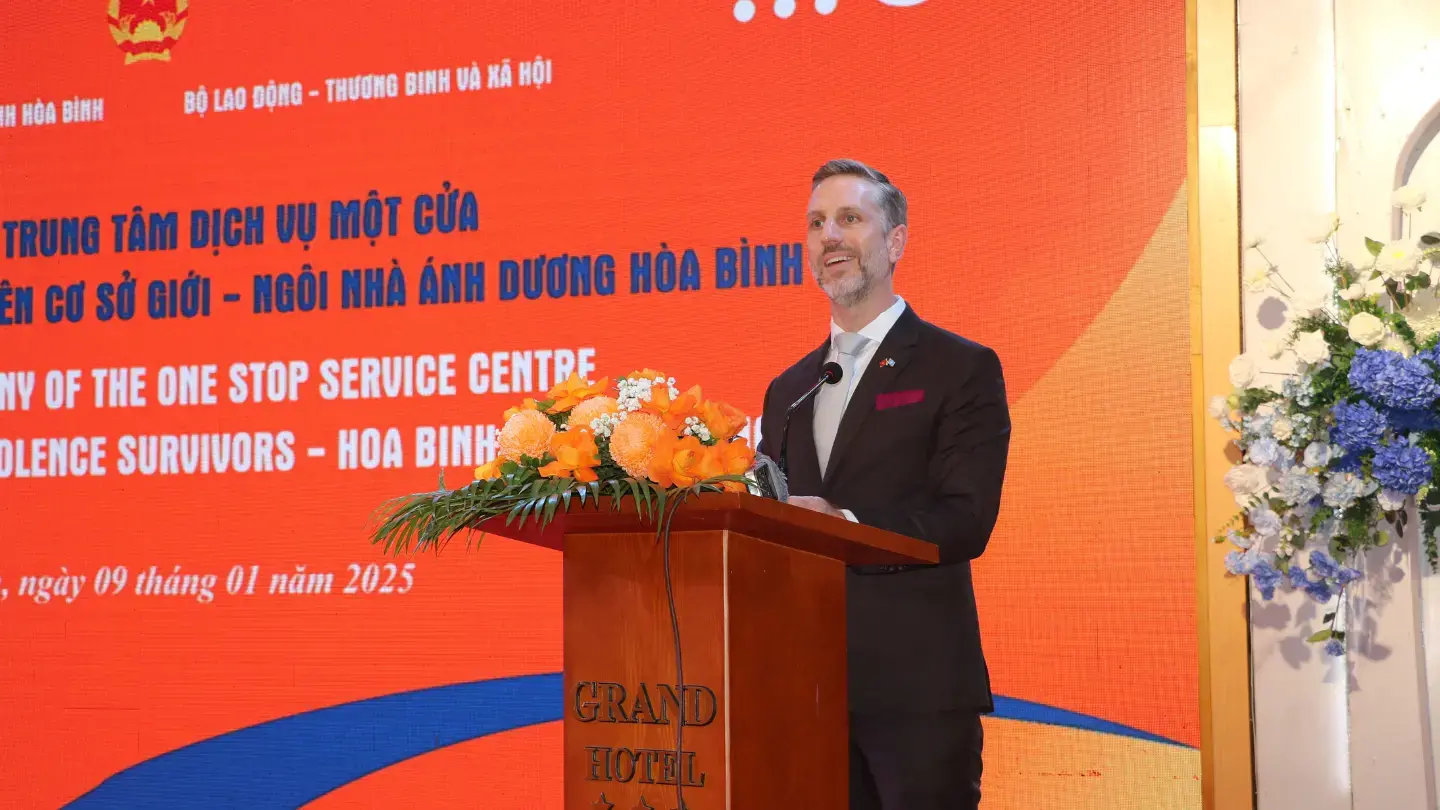Excellency Ms. Trinh Thi Thuy, Vice Minister of Culture, Sports and Tourism;
Mr. Mark Tattersall, Chargé d’Affaires a.i of the Australian Embassy to Viet Nam.
Representatives of the Ministry of Culture, Sports and Tourism; other line ministries, officials from Australian DFAT, International Organizations, Civil Society Organizations, UN and media colleagues and online participants;
Good morning,
I am much honored to be here today for the workshop on the implementation of the National Programme on Domestic Violence Prevention and Control towards 2025 and the Prime Minister’s Decisions on the Family Work. I would like to express my deep appreciation to the Ministry of Culture, Sports and Tourism (MOCST) in the elaboration and the finalization of the National Action Programme on Domestic Violence Prevention and Control towards 2025.
I would also like to extend our great appreciation to the partnership with the Australian Department of Foreign Affairs and Trade to partner with us in the implementation of the current project “Eliminating violence against women and children in 2021-2025,” which is jointly implemented by UNFPA, UNICEF and UN Women. This is an innovative initiative to link violence against women and violence against children for coherent and effective response, so as to eliminate domestic violence in Viet Nam.
Dear participants,
The 2019 National Study on Violence against Women (VAW) in Viet Nam, which was also jointly supported by Australian DFAT and UNFPA, showed very little change in term of prevalence of violence against women since the 1st study in 2010. Findings of the study show that 62.9 percent of women in Viet Nam experience one or other forms of violence, including physical, sexual, psychological and economic violence and controlling behaviours. As yet, it is very much hidden in Viet Nam’s society, as 90.4 percent of survivors of violence did not seek any help from authorities, and half of them never told anyone about the violence. It should also be highlighted that violence against women is estimated to be costing Viet Nam 1.81% of GDP in 2018. This is an alarming issue and the recommendations from the 2019 National Study on VAW highlighted the need for strengthening interventions in the coming period.
It was against this background that UNFPA has supported the MOCST in amending the Domestic Violence Prevention and Control Law, which is the pivotal legal framework to address domestic violence, and it is scheduled be elaborated in the upcoming session of the National Assembly in May for approval in October. The Law provides the guiding principles for the National Programme, which is in discussion today.
I am very proud of Viet Nam reaching this level of engagement in trying to eliminate domestic violence in the country, and in the next five years, under UNFPA’s new 10th country programme for Viet Nam, we are fully committed to continuing to support the Ministry for the implementation of this National Programme to ensure that all women and children in Viet Nam, including those most vulnerable, live a life free of violence.
Dear participants,
Ending violence against women and girls should be a priority for everyone for the achievement of the 2030 Sustainable Development Goals, leaving no one behind. We must stop violence against women and children now, and I trust the cooperation between the Government of Viet Nam, the Government of Australia, UNFPA and other international and national partners will realise that goal.
Thank you very much for your attention and participation.





